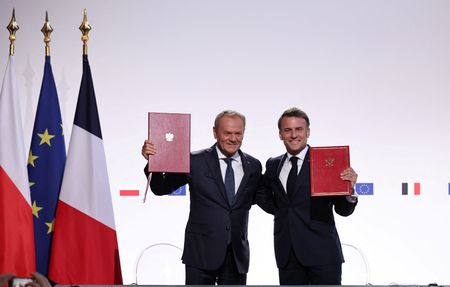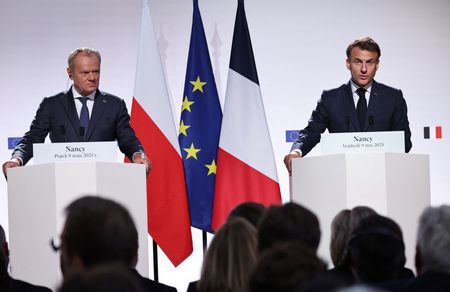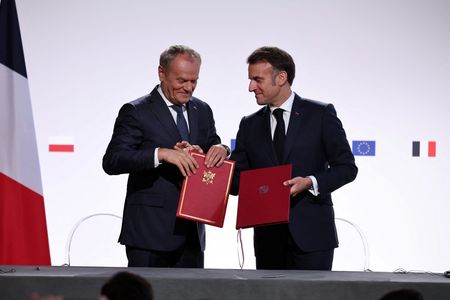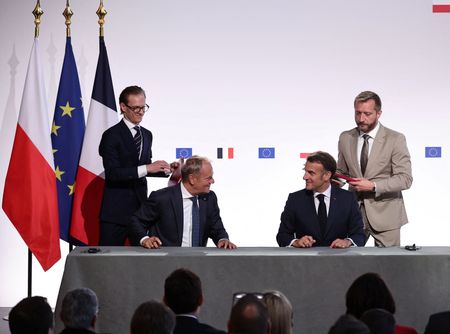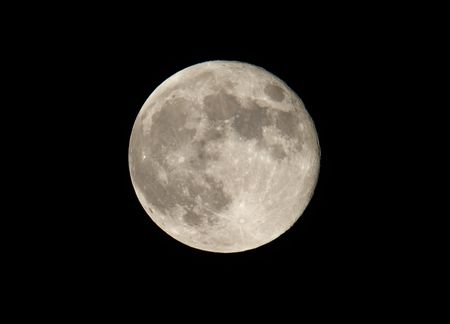By Elizabeth Pineau
NANCY, France (Reuters) – France and Poland signed a treaty on Friday to increase cooperation on defence, nuclear energy and other measures, in a sign of growing alliances between European nations amid concerns about U.S. commitment to Europe’s security.
The signing came a day before Ukraine hosts leaders of the so-called “coalition of the willing” – countries led by France and Britain that want to step up support for Ukraine in the face of a more sceptical Trump administration.
President Emmanuel Macron, speaking alongside Polish Prime Minister Donald Tusk, said France would participate in the Ukraine summit but declined to say whether he would attend, saying he would travel to Ukraine when necessary.
The treaty with Poland includes a mutual assistance clause, deepening a commitment between the two NATO member states to support each other in case of an attack, and a pledge to deepen military and technological links.
“I am deeply convinced that from today France and Poland in these difficult times will be able to count on each other in every situation,” Tusk said.
Earlier, Tusk said the pact would pave the way for cooperation on a potential extension of the French nuclear umbrella to cover Poland. However, there was no specific mention of access to France’s nuclear deterrent in the treaty itself.
Macron said in March he was open to extending French nuclear capabilities to other European nations, partly in response to growing doubts over U.S. President Donald Trump’s long-term commitment to European security.
The new pact does, however, include provisions for deeper integration on nuclear energy, with France eager to export its nuclear know-how across Europe and beyond.
The treaty is testament to fast-growing Poland’s increasingly pivotal role on the European stage, thanks to its strategic position on the continent’s eastern flank. Poland spends 4.12% of its economic output on defence, the highest percentage in the NATO alliance.
Tusk’s centrist, pro-European government is keen to diversify its security partnerships beyond Washington.
The treaty is the first that France has signed with a central European country after a series of pacts with Italy, Spain and Germany.
It was signed in the eastern French city of Nancy, where Poland’s King Stanislaw Leszczynski lived in the late 18th century, becoming Duke of Lorraine after losing the Polish throne.
(Reporting by Anna Koper, Pawel Florkiewicz, Michel Rose and Elizabeth Pineau; Editing by Gabriel Stargardter, Hugh Lawson, Timothy Heritage and Sharon Singleton)

